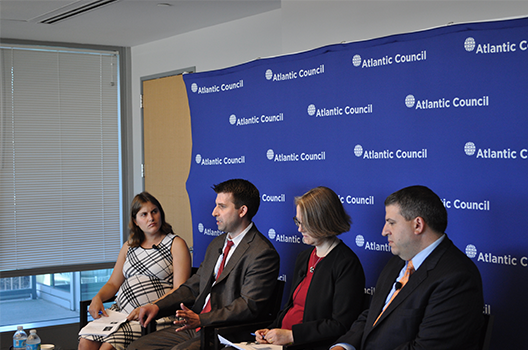 The Trump administration is said to be drafting a new arms package for Taiwan that could include advanced rocket systems and anti-ship missiles. The package is expected to be significantly larger than one that was shelved at the end of the Obama administration, US officials told Reuters on the eve of a visit to Beijing by US Secretary of State Rex Tillerson two months ago. The United States has long committed itself to providing Taiwan with the means to defend itself and have engaged in unofficial diplomatic relations since the Taiwan Relations Act of 1979. American presidents have engaged in robust arms sales to Taiwan since the Carter administration and have sold Taiwan more than $30 billion in weapons since then. Current cross-strait relations are strained, and Beijing is likely to react to any arms sale to Taiwan. How will this arms sale affect Taiwan’s defense and security, how will Beijing respond, and how will the arms sales package fit into the Trump administration’s broader strategy in the Asia-Pacific?
The Trump administration is said to be drafting a new arms package for Taiwan that could include advanced rocket systems and anti-ship missiles. The package is expected to be significantly larger than one that was shelved at the end of the Obama administration, US officials told Reuters on the eve of a visit to Beijing by US Secretary of State Rex Tillerson two months ago. The United States has long committed itself to providing Taiwan with the means to defend itself and have engaged in unofficial diplomatic relations since the Taiwan Relations Act of 1979. American presidents have engaged in robust arms sales to Taiwan since the Carter administration and have sold Taiwan more than $30 billion in weapons since then. Current cross-strait relations are strained, and Beijing is likely to react to any arms sale to Taiwan. How will this arms sale affect Taiwan’s defense and security, how will Beijing respond, and how will the arms sales package fit into the Trump administration’s broader strategy in the Asia-Pacific?
On June 9, the Brent Scowcroft Center on International Security’s Asia Security Initiative hosted a Cross-Straits Series event on the next US-Taiwan arms sale. The discussion brings together Mr. Abraham Denmark, Former Deputy Assistant Secretary of Defense for East Asia of the US Department of Defense; Mr. Ian Easton, Research Fellow of Project 2049 Institute; and Ms. Susan Lawrence, Specialist, Asian Affairs of the Congressional Research Service. The discussion was moderated by Ms. Shannon Tiezzi, Editor at The Diplomat.
The session began with remarks from Mr. Easton who presented three questions around the US-Taiwan arms sale and subsequently answered them. He began by answering what might be in the coming arms package. Mr. Easton suggested two possibilities: a routine arms sale or a more robust arms sale that involves a both a larger quantity of arms but also more sophisticated arms. He highlighted that the length of time it has taken the Trump administration to announce a US-Taiwan arms sale suggests it is likely a larger and more robust arms sale. He then went into what Taiwan’s long term goals are. Taiwan is looking for the United States to reaffirm the Taiwan Relations Act and the Six Assurances, to receive consistent arms sales from the United States, and wants the United States to reaffirm Taiwan through other outlets besides an arms sale. Finally, Mr. Easton explained what exactly the US arms sale means to Taiwan. The sale will help reassure our commitments to Taiwan, inform Beijing that coercion and aggression are not accepted, and provide a moral boost to Taiwanese military personnel.
Ms. Lawrence provided necessary historical context. She referred to the Taiwan Relations Act of 1979, the Six Assurances, and the Three Communiques between the United States and the Peoples Republic of China. She emphasized the United States Congress’s role in regards to Taiwan and Taiwan’s security, highlighting how Congress originally put the security measures in the Taiwan Relations Act, and how the National Defense Authorization Act reassures security ties with Taiwan. She highlighted that the Taiwan Relations Act has the United States law behind it, unlike the Six Assurances and the Three Communiques. China always rejects the US-Taiwan arms sales, but the size and sophistication of the arms sale also determines the Chinese response. It is also determined by current Beijing-Taipei relations and since current relations are strained, we are likely to see a more aggressive response to a US-Taiwan arms sale.
Lastly, Mr. Denmark said that the new administration needs time to develop a comprehensive strategy, especially considering the intricacies surrounding Taiwan. We have yet to see a large-scale Asia strategy from the new administration but have seen inclinations of a strategy towards North Korea, China, and the South China Sea. Mr. Denmark found it unlikely that there will be major changes in the coming arms sale but finds it possible. He then went beyond the arms sale and emphasized that the United States’ relationship with Taiwan should go beyond the military sphere. Taiwan currently is constrained in its involvement in the World Health Organization, and this is a place the United States can help advocate for Taiwan. Another space the United States can assist Taiwan in is trade. The 40th anniversary of the Taiwan Relations Act is in one and a half years, a good time to reevaluate and revamp the Taiwan Relations Act to fit into the modern context. American allies can also step in and begin providing arms to Taiwan where/if the United States lacks, but support for Taiwan is very important to the United States and this is unlikely to change anytime soon.
